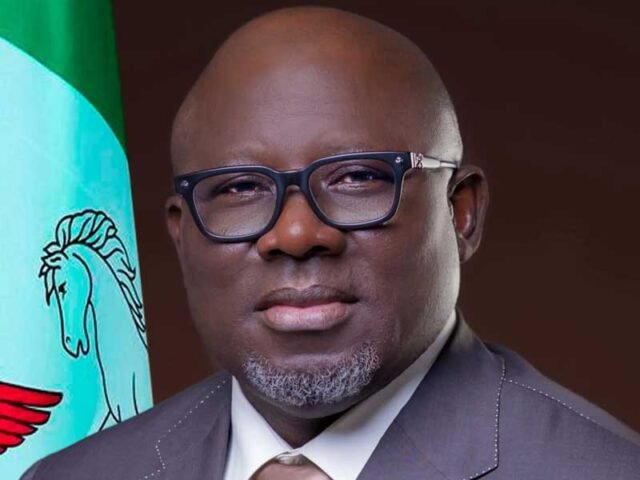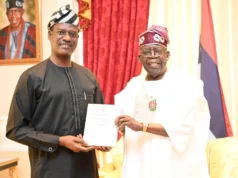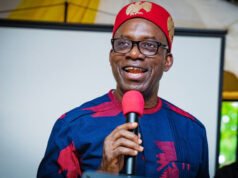Delta-Five, a team of five students from Delta State public schools, boarded a flight to Doha earlier this year with little fanfare but returned as global champions of the World Basic Schools Debate Championship 2025. The students—Wisdom Chukwuma (Government College, Ughelli), Otorvo Uyoyou (Alegbo Secondary School, Effurun), Abraham Honour (Okpaka Secondary School), Ekhamateh Splendour (Government Model Secondary School, Asaba) and Alika Daniel (Utagba-Ogbe Grammar School, Kwale)—had first earned their place by winning the President’s National Basic Education Debate Championship, where they triumphed over competitors from all 36 states and the FCT.
On the international stage in Qatar, they stood toe-to-toe with peers from the United States, the host nation Qatar, and several other countries. Armed with eloquence, confidence, and razor-sharp reasoning, they debated pressing global issues including climate change, youth empowerment, and the ethics of artificial intelligence. Against all odds, the young Nigerians lifted the trophy, proving that brilliance and excellence can thrive in the nation’s public schools.
This victory is not just about a trophy—it’s a turning point in how Nigerians perceive public education. For once, the heroes of the classroom did not come from elite private institutions, but from schools that reflect the lives of ordinary people.
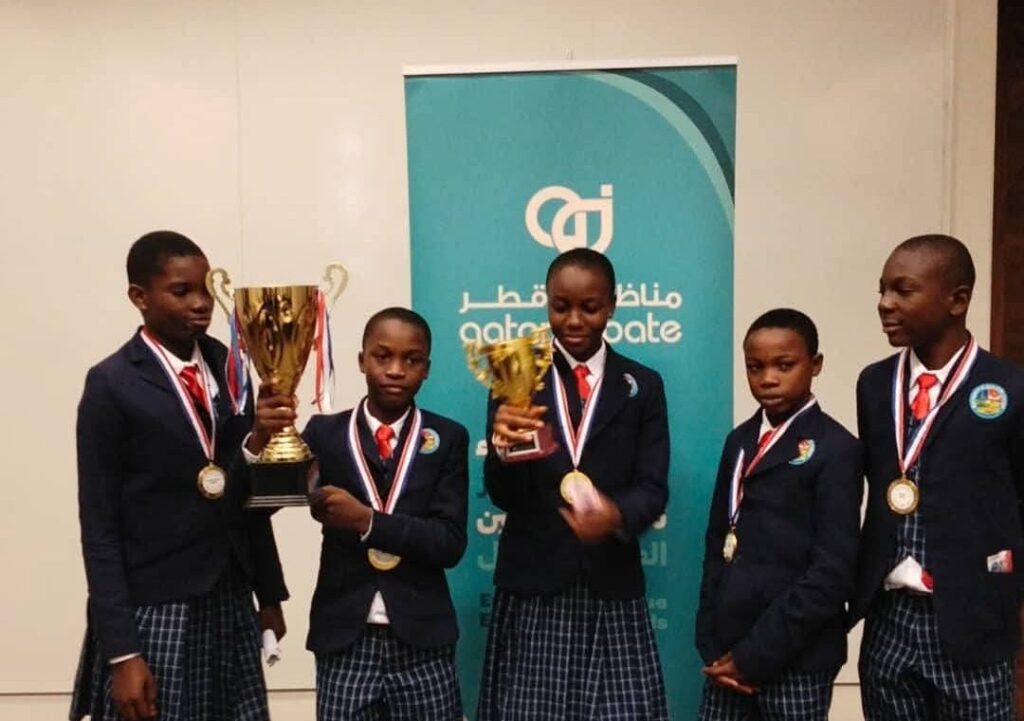
Table of Contents
The Governor’s Blueprint for Education
Behind the scenes of this triumph lies a larger story: the deliberate investments and policies put in place by Governor Sheriff Oborevwori. Himself a product of public schools, the governor has made education a central pillar of his administration’s vision for Delta State.
One of his first bold steps was ensuring that Delta became the first state in 2025 to release its counterpart contribution to the Universal Basic Education Commission (UBEC). This timely action unlocked federal matching funds for school projects and sent a strong message that education is not just a talking point but a priority.
Oborevwori’s administration has also invested in teacher recruitment and training, improving classroom delivery and boosting morale in the sector. More teachers mean smaller class sizes, while training ensures they are equipped with modern teaching methods. Infrastructure upgrades—ranging from new classrooms and science laboratories to ICT centres—are slowly reshaping the physical landscape of schools. For many students, these changes are their first contact with technology-driven learning.
Equally important has been the governor’s attention to teachers’ welfare. By addressing issues of salaries and allowances, the administration is fostering stability in the system. A motivated teacher is a productive teacher, and this has direct effects on learning outcomes.
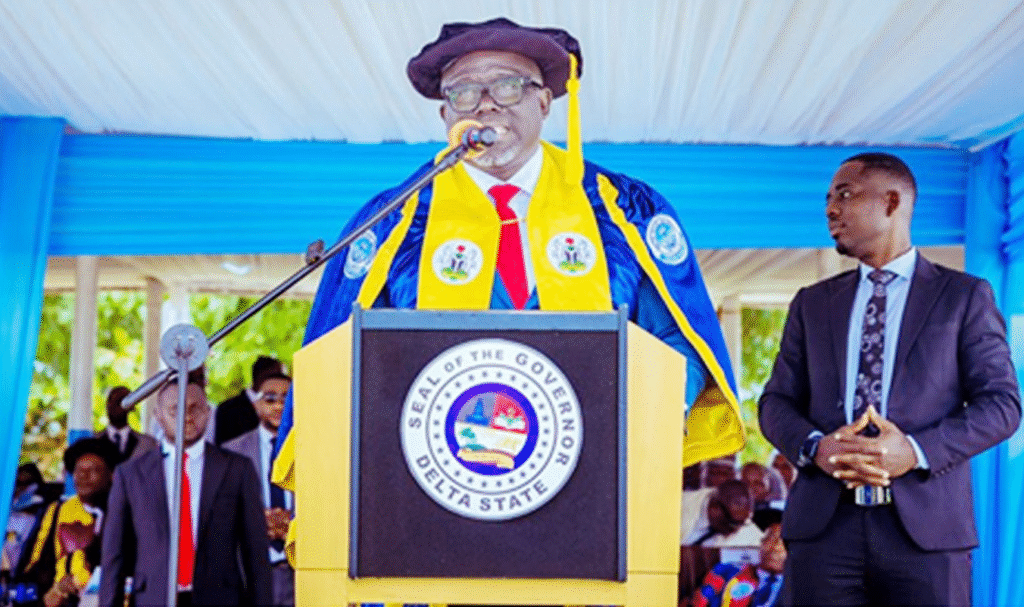
Why the Delta-Five Story Matters
The Delta-Five’s victory resonates deeply because it challenges a widely held belief—that public schools are destined to underperform. For years, parents have sacrificed beyond their means to send children to private schools, fearing that public schools cannot deliver quality. The success of the Delta-Five sends a powerful counter-narrative: with proper investment and political will, public schools can compete at the highest levels.
Their story highlights four critical lessons:
- Good policy equals good outcomes: Timely funding, such as the UBEC counterpart release, translates directly into functional classrooms and empowered teachers.
- Mentorship matters: Debate clubs, extracurricular activities, and teacher guidance helped polish these students’ natural talents.
- Equity in education pays off: When children from ordinary families succeed on global platforms, the whole community feels represented and inspired.
- Education is national branding: Just like athletes put Nigeria on the map in sports, students like the Delta-Five do the same for intellectual achievement.
Already, education stakeholders across Nigeria are pointing to Delta’s model as a template worth emulating. If one state can raise public-school students to world-champion status, why not others?
Sustaining the Momentum
The challenge now is not just to celebrate the Delta-Five but to ensure that their success is not an isolated event. For this, the state needs to sustain and deepen its educational reforms. Several key priorities stand out:
- Expand training for teachers: Professional development should be continuous, with emphasis on digital literacy, problem-solving, and critical thinking methodologies.
- Upgrade infrastructure across all zones: Urban schools often get attention first, but rural schools—where resources are scarcer—must also benefit from modern facilities.
- Strengthen extracurricular platforms: Debate clubs, science fairs, essay competitions, and arts festivals can provide regular outlets for students to sharpen their talents.
- Create scholarships and recognition systems: Rewarding outstanding students, like the Delta-Five, with scholarships or international exchange opportunities can motivate others.
- Engage communities and alumni: When parents, local leaders, and old students support schools, the culture of excellence spreads faster.
Ultimately, the legacy of the Delta-Five will depend on what happens next. Their victory has shown what is possible. It is now up to policymakers, educators, parents, and students themselves to turn that possibility into a consistent reality.
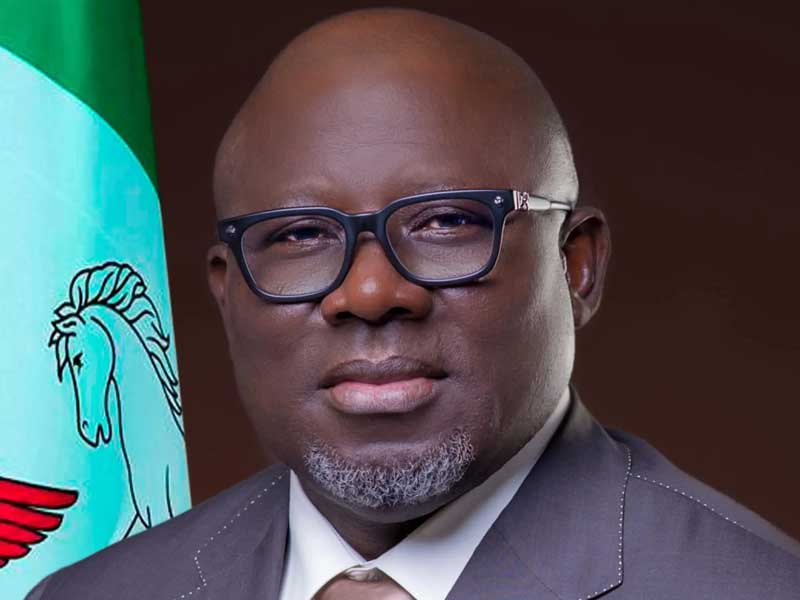
Conclusion
The story of the Delta-Five and Oborevwori’s education vision is one of resilience, opportunity, and deliberate planning. It proves that when public schools are given resources, respect, and leadership, they can rival and even surpass private institutions. For Delta State, it is more than a trophy in Doha; it is a glimpse of a future where education is the real wealth of the people.
If sustained, this vision could transform Delta into a centre of learning excellence in Nigeria—and inspire other states to follow suit. The Delta-Five have shown the way; now, it is time to multiply their story across every classroom.
Join Our Social Media Channels:
WhatsApp: NaijaEyes
Facebook: NaijaEyes
Twitter: NaijaEyes
Instagram: NaijaEyes
TikTok: NaijaEyes
READ THE LATEST EDUCATION NEWS


